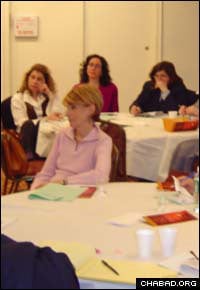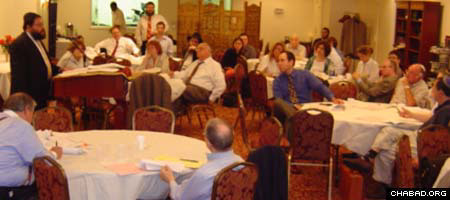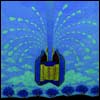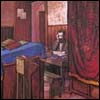Three lawyers walk into a synagogue.
Don't wait for a punch line. It's how a normal operating day begins at the Institute of American and Talmudic Law, which until recently was housed at Chabad-Lubavitch of Midtown Manhattan.
Today, at the institute's new location on 45th Street, some of New York's most prominent legal analysts continue to regularly confer with Rabbi Shlomo Yaffe to get the Talmudic take on anything from the war on terror to environmental law, from employee rights to celebrity divorce.
The monthly meetings are by no means exclusive, drawing anywhere from 15 to 50 attorneys from the Tri-State area who choose to fulfill their continuing education requirements by attending the institute's classes.
According to Yisroel Schulman, founder and president of the New York Legal Assistance Group, the program is a breath of fresh air for members of a profession who must take a certain number of courses every year.
Most states, he explained, demand members of the bar to accumulate dozens of hours in Continuing Legal Education credits, and the difficulty lies in finding a course that's worth more than its time-equivalency.
"You can end up listening to hours of lectures that don't really speak to you," said Schulman.
Quoting acquaintances of his, Rabbi Noach Heber, director of the Talmudic law institute, echoed Schulman's sentiments: "CLE can be like a root canal. You need to get it done, but it's painful."
To inject a little bit of energy into the field, and to demonstrate the relevance that the Talmud – a compendium of rabbinic legal, ethical and moral teachings compiled in the 5th century – can have among jurists and solicitors, Schulman and Heber teamed up with Rabbi Joshua Metzger, director of Chabad of Midtown. With the help of Yaffe, a noted Talmudic scholar with a command of modern-day legal topics, they produced the institute in 2002 and began offering CLE courses shortly thereafter.
Schulman said that he finds the thought process and depth of Talmudic logic fascinating.
"Not only the rulings, but the themes and reasons behind the law are methodically explored and are very practical," he explained.
That the Talmud is 2,000 years old posed no challenge to trial-lawyer Robert Persky, a regular at the institute.
Citing its scope – the Talmud has something to say about monetary law and damages, as well as family law, criminal proceedings and how people are supposed to relate to G‑d – Persky maintained that "it's 2,000 years ahead of [our legal system] in every way."
Persky revealed that he's even employed some Talmudic arguments presented by Yaffe in trial proceedings on several occasions.
Rule of Law

According to Yaffe, popular discussions at the institute include the role of individual responsibility in corporate financial scandals and the rule of law as it applies to the war against terror.
The Talmud is "very aware of the dangerous gap that can sometimes emerge between the letter and spirit of the law," said Yaffe, who also maintains a pulpit at Congregation Agudas Achim in West Hartford, Conn., and founded the Connecticut Symposium on Contemporary Legal Issues and Jewish Law. "It has developed very interesting means of addressing this issue."
From its inception, the institute called upon a Who's Who of American lawyers to add their voices to their program. An average lecture may feature a Barry Slotnick or a Nathan Lewin or a Ben Brafman, who between them have represented a U.S. president, a Beatle and an almost continuous string of Hollywood A-listers.
Persky added that Yaffe's Talmudic perspective is just as powerful.
He draws comparisons "not just to American law," said Persky. "He brings in British common law all the time, and laws from several other countries."
Currently, lawyers can log onto IATLaw.org to purchase and download CLE lectures on a broad range of topics. By clicking on their home state, buyers can see how many credits a particular lecture will earn them. By 2009, the institute plans to offer live courses in every state that mandate Continuing Legal Education.
Schulman would love nothing more than seeing lawyers nationwide applying the Talmud to current debates.
"If you listen to current political dialogue," he asserted, "you get the feeling that a grounded set of objective morals as the Talmud presents will be welcomed wherever it is offered."








Join the Discussion